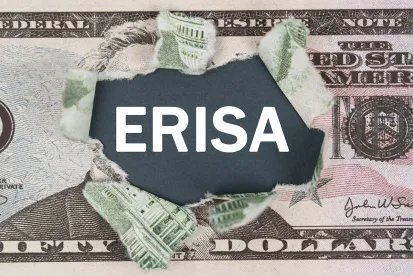A federal district court in New York recently granted Omnicom Group Inc.’s (“Omnicom’s”) motion to dismiss, for lack of Article III standing, claims challenging the offering of investment options in Omnicom’s 401(k) plan in which the plaintiff participants did not invest. The court denied Omnicom’s motion to dismiss, however, with respect to the remainder of the claims, which alleged that Omnicom’s administrative committee breached its fiduciary duties under ERISA by including allegedly costly and underperforming funds in its 401(k) plan, causing the plan to pay excessive recordkeeping fees and offering an investment lineup that was overly expensive.
With respect to the standing argument, the court first rejected defendants’ reliance on the Supreme Court’s recent decision in Thole v. U.S. Bank N.A., 140 S. Ct. 1615 (2020), which held that participants in a defined benefit plan do not have standing to sue when they personally suffered no monetary injury. The court concluded that it was of “decisive importance” that Thole involved a defined benefit plan as opposed to a defined contribution plan, like the one at issue here. Nevertheless the court held that this did not change the fact that a plaintiff must allege and show that she has been personally injured to demonstrate injury-in-fact as required under Article III. Relying on analogous case law from the Second Circuit, the court concluded that a plaintiff in a defined contribution plan who does not personally invest in a challenged fund lacks Article III standing to sue.
In so ruling, the court rejected the notion that plaintiffs suing derivatively on behalf of a plan under ERISA § 502(a)(2) automatically have standing. The court explained that a plaintiff must assert both a cause of action under ERISA and a constitutionally cognizable injury-in-fact. Since plaintiffs could not have suffered an injury from the alleged mismanagement of funds in which they did not invest, the court concluded that plaintiffs could not demonstrate the requisite injury. Similarly, the court concluded that merely because plaintiffs filed their lawsuit as a class action did not change the analysis because the requirements of Article III are “no less true with respect to class actions” than with other suits. Finally, despite its finding that Thole was inapplicable, the court did cite Thole for its statement that “there is no ERISA exception to Article III.”
The court then concluded that plaintiffs can only seek relief with respect to funds in which they were invested. The court did, however, allow plaintiffs to challenge the entire suite of target date funds even though plaintiffs invested in only five of the thirteen funds, because the funds were all part of the same product line.
With respect to the claims for which plaintiffs had standing, the court rejected defendants’ arguments for dismissal. It concluded that plaintiffs stated a claim for imprudence with respect to the suite of target date funds because plaintiffs sufficiently alleged that the funds charged higher fees, or underperformed relative to comparable funds. In so ruling, the court referenced what it found to be the trend among courts in the Second Circuit to defer deciding whether the complaint identified suitable comparator funds until after discovery. For the same reason, the court declined to dismiss plaintiffs’ claim that the overall investment menu was overly expensive.
The court also declined to dismiss plaintiffs’ claim that the plan paid excessive recordkeeping fees because, it found, plaintiffs provided sufficient evidence that comparable plans paid lower fees and defendants’ arguments to the contrary were more appropriately evaluated after discovery. Finally, the court allowed plaintiffs’ failure to monitor and knowing breach of trust claims to proceed because plaintiffs plausibly alleged an underlying breach of fiduciary duty and that defendants knew or should have known of the alleged breaches.
View from Proskauer
The court’s ruling on the standing issue is potentially significant because plaintiffs frequently challenge the prudence of funds in which they did not personally invest. It is unclear how helpful it will ultimately prove to be, however, because many courts have already ruled that plaintiffs do have standing to challenge funds in which they did not invest. Hopefully, courts examining fresh challenges on standing grounds will follow this court’s lead, given the thorough and persuasive manner in which the court presented its rationale for the ruling.
The case is In re Omnicom ERISA Litig., No. 20-cv-4141 (S.D.N.Y. Aug. 2, 2021).




 />i
/>i

